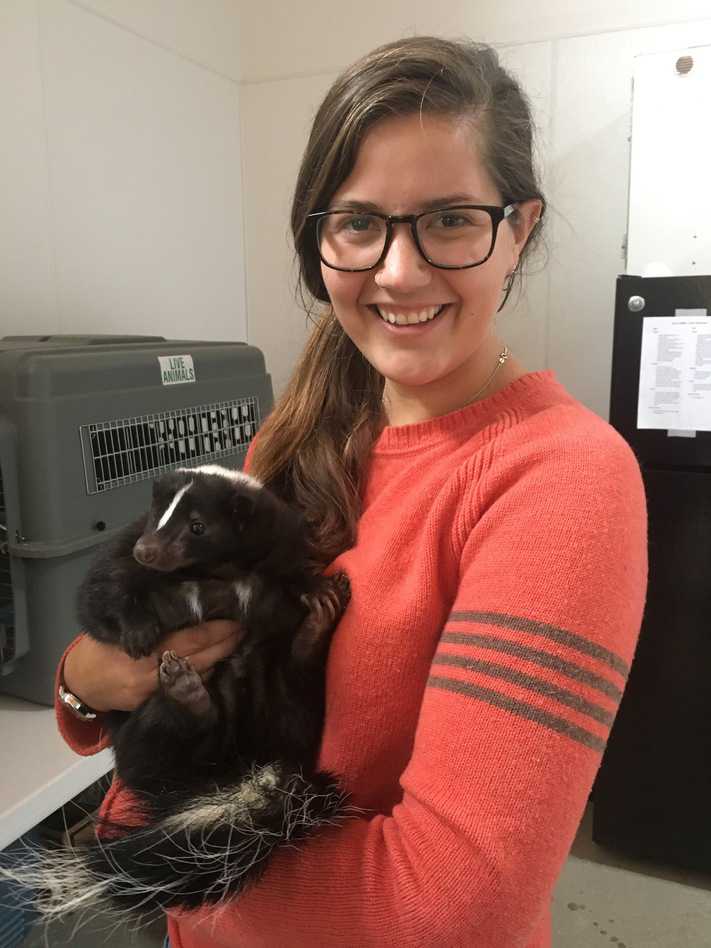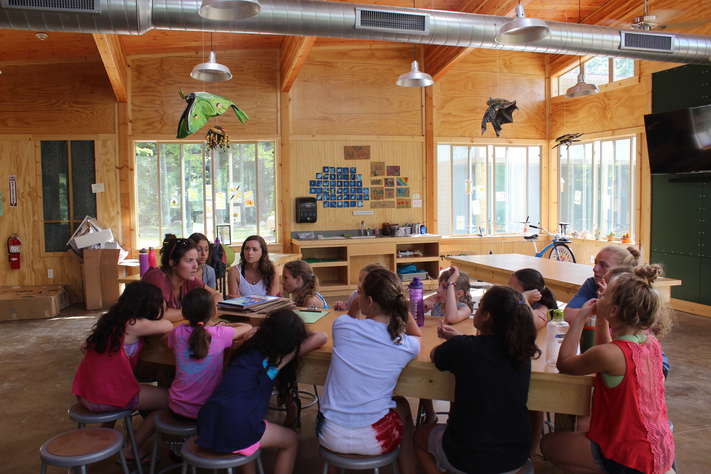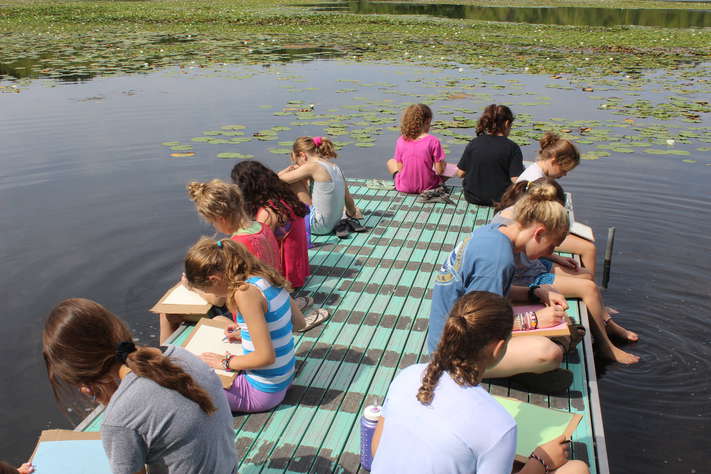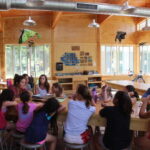by Bailey Lininger, Tamarack Camps, Bloomfield Hills, MI
Parashat Noach
Editor’s Note: Welcome to D’varim HaMakom: The JOFEE Fellows Blog! Most weeks throughout the year, you’ll be hearing from the JOFEE Fellows: reflections on their experiences, successful programs they’ve planned and implemented, gleanings from the field, and connections to the weekly Torah portion and what they’ve learned from their experiences with place in their host communities for the year. Views expressed are the author’s and do not necessarily represent Hazon. Be sure to check back weekly!
P.S. Interested in being or hosting a JOFEE Fellow? Applications for cohort two are now open for both prospective fellows and prospective host institutions and will continue to be reviewed as positions are available.

Some days, my job makes me feel like Noah, stocking his Ark full of animals before the flood, the weight of the world’s responsibility on my shoulders. Let me explain: At Tamarack Camps, where I’m placed as a JOFEE fellow, I have the good fortune of being the supervisor of Tamarack’s brand new nature center: The Teva Center. Just finished in June 2016, we’ve slowly but surely been filling with new animal residents ever since. Our goal is a nature center filled with native Midwestern animals, ready to host programs and events that allow our community to have up close and personal experiences with the animals that share their ecosystem.
With each new animal, my sense of responsibility towards this mini-ark grows. Our first addition was Leo, a baby painted turtle with a broken foot. Next came Kaa and Rous, a pair of corn snakes. At the end of the summer, we got a red-tailed hawk and a snowy owl, both with wing injuries that prevent them from reentering their natural habitats. About a month ago, we got a tiger salamander, a pair of gray tree frogs, and an eastern box turtle. Just last week, the newest guy moved in: a skunk named Webster (don’t worry – his scent glands have been removed). It’s quite the menagerie!

The animals, however, are just one part of our larger mission in building this new center. We want the Teva Center to serve as a place of transformation—a place where our campers and participants can come to find meaning in the natural world and to see how our actions, big and small, affect the ecosystems we inhabit. In that way our Teva Center is again not unlike the ark. We want it to be filled with hope and to foster new beginnings in an era where habitat- and species-loss are common occurrences. As a summer camp and outdoor education organization that brings thousands of children and adults into the woods every year, we recognize that it is no longer optional for us to teach about environmental issues—it is our responsibility.

In the parsha for this week, we’re given the story of Noah and his ark. Filled with beast and brethren, Noah survives the flood so that he can begin the world again. In reading and reflecting upon this story, this word – responsibility – keeps coming up. The responsibility that I feel towards the animals is in many ways personal: I care for them and want to keep them safe. The responsibility Noah was given in this story was immense and cultural: to rebuild the world, from scratch, and to make it a better place than it was before.
This second kind of responsibility, the cultural and societal kind, closely parallels what so many of us in the environmental education field grapple with every day. How do we teach responsibility to our students, our children? How do we build a sense of responsibility that spans generations? In our new Teva Center, our animals give campers, students, and families a chance to interact with creatures they would have previously ignored, or worse, been afraid of. This kind of boundary-pushing leads to a deepened sense of empathy, and a greater understanding of just what is at stake when we are careless with the natural world. It is my hope that these encounters, and the conversations that follow them, can begin to instill a sense of responsibility and stewardship into the children and adults that pass through the Teva Center throughout the year.

When it comes to the environment, teaching about responsibility for our actions—or even just taking responsibility for our actions—isn’t easy. It is my hope that as environmentalists and educators, we can strive to be like Noah as he built the ark: determined, patient, and willing to work for something greater than ourselves.
Bailey Lininger is the JOFEE fellow for Tamarack Camps, a Jewish summer camp and outdoor education center in Ortonville, Michigan. Bailey spends her days teaching outdoor and environmental education programs and cleaning up after her new skunk officemate, Webster. A native Michigander, Bailey is ecstatic that the JOFEE fellowship has given her the opportunity to do work she is passionate about in the community and landscape she calls home. Read her full bio here.
